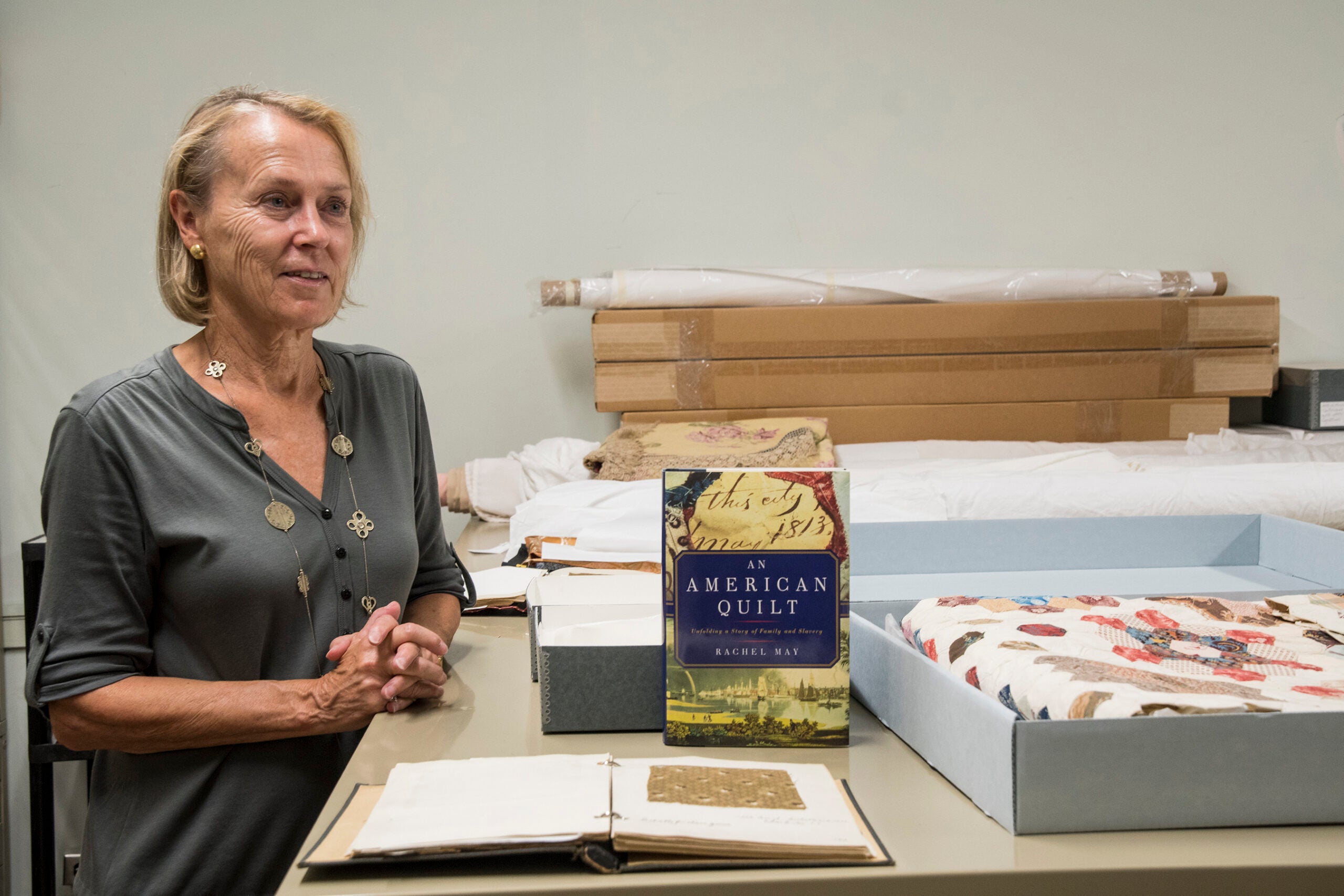KINGSTON, R.I. – Sept. 18, 2019 – The complex cultural, social and economic relationships between North and South in pre-Civil War America is the focus of a daylong symposium Saturday, Sept. 28, on the Kingston Campus at the University of Rhode Island.
“Tales of North and South in Antebellum America: A Complicated Web” is being presented by the College of Business’ Department of Textiles, Fashion Merchandising and Design in connection with the Rhode Island Black Heritage Society and the Costume Society of America Northeast Region.
“We think of the South as pro-slavery and the North as anti-slavery, but it was far more complicated than that,” said Linda Welters, a URI professor in the Department of Textiles, Fashion Merchandising and Design. “We want to show recent research that’s being done that connects Northern industry with the Southern slave economy.”
Those complicated relationships were showcased in Rachel May’s 2018 book, An
American Quilt: Unfolding a Story of Family and Slavery, which explores the origins of three quilts in URI’s Historic Textile and Costume Collection that were part of a sizable donation by Franklin Cushman in the 1950s. An American Quilt tells the story of Cushman’s great-aunt, Susan Williams Crouch, who created the quilts with her husband, Hasell Wilkinson Crouch, and their connection to slavery.
May’s book inspired the URI Textile Gallery’s exhibit, “One American Family: A Tale of North and South,” which features the quilts along with early 19th-century clothing from the Cushman Collection. The symposium is being held in conjunction with the exhibit. The gallery, located on the first floor of Quinn Hall, will be open for tours the day of the symposium.
May stitched together the story of the Williams-Crouch family from the 1830s through 1860s over seven years of research, which began when she was a doctoral student at URI. Despite coming from a Northern family and having sisters who were abolitionists, Susan was tolerant of slavery when she moved to Charleston, South Carolina, upon marrying Hasell.
“She heads down South and suddenly finds herself an owner of slaves,” said Susan Jerome, manager of collections. “We don’t know how she felt about it, but Rachel imagines how Susan felt in her book. You know, would you accept it just because the United States is partly (made up of) slave holding states? I don’t know?”
The Williams family also worked in the mercantile industry, shipping goods between Providence and Charleston, S.C. Other Northern businesses had more overt connections to the slave economy. “Textile mills imported Southern cotton to manufacture fabric, termed ‘negro cloth,’” said Welters. “Rhode Island mills sometimes commissioned local families to make loose-fitting trousers and shirts that were sold to slave owners specifically for slaves.”
“In the North, where you have the anti-slavery movementmanufacturers are making money off of the Southern slave trade,” said Jerome. “Since the Civil War, the North has covered that up and it’s recent research, scholarly publications, that have started to bring this back to light. And that’s what we’re doing as well.”
At the Sept. 28 symposium, May will do a reading from An American Quilt, highlighting a program of about a half-dozen speakers. Keith Stokes, vice president of the 1696 Heritage Group in Newport and a descendant of slaves, will tell the story of his family and how they escaped to freedom.
Katie Knowles, assistant professor and curator of Avenir Museum at Colorado State University and a member of the Costume Society of America, will discuss research on the clothing of slaves and former slaves. “Clothing was very important in the 19th century to show your status,” Welters said. “Knowles is finding that even within slave communities people did things to make themselves stand out. She’s framing it as resistance to clothing that was foisted on them by slave owners.”
Other speakers are: Marcus Nevius, URI assistant professor of history, who will discuss “The Price of Freedom in American Slavery, 1800 to the 1830s,” Seth Rockman, associate professor of history at Brown University, will speak on “Plantation Labor Outsourced: Situating New England Textiles in the National Economy of Slavery,” and Lynne Bassett, an independent scholar from Palmer, Mass., on “Understanding Free Blacks’ Clothing – A Photo Study.”
The symposium runs from 9 a.m. to 4 p.m. in the Agnes G. Doody Auditorium on the first floor of Swan Hall, 60 Upper College Road, on the Kingston Campus. The symposium is free and open to the public. Registration is not required.
Attendees can sign up for a box lunch, provided by URI Catering, for $15. To register, contact Beth Fay at (401) 874-4574 or at bfay@uri.edu before Sept. 20 with your choice of roast beef, chicken, or vegetarian wrap, along with payment information.

